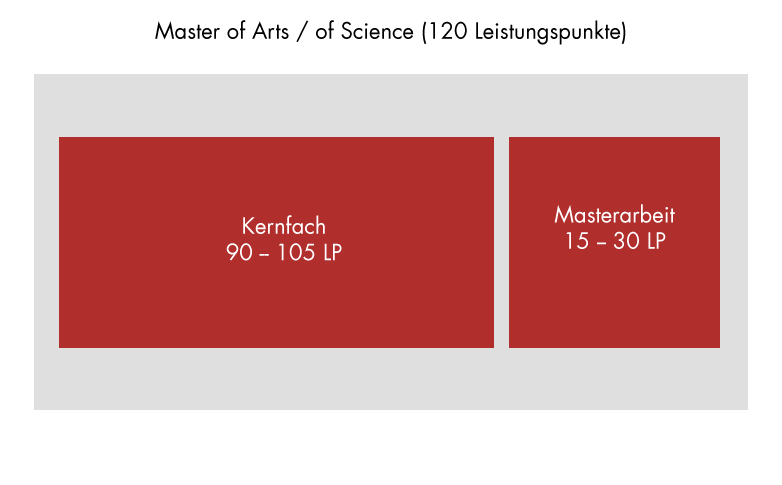A bachelor’s programme can be followed by a master’s, which results in a higher academic degree.
A master’s programme at Leipzig University usually lasts four semesters (two years) and leads to a Master of Arts (MA) or Master of Science (MSc) degree.
Structure
A master’s programme consists of the core subject with compulsory modules, compulsory elective modules, and the master’s thesis. On some courses, students can also take elective modules from other subject areas in addition to their core subject. Some master’s programmes allow students choose from several specialisations, giving their studies a clear specialist focus.
Modules
On bachelor’s and master’s programmes, teaching is characterised by modules. Courses such as lectures, seminars and practical courses are grouped together into thematically related blocks known as modules.
Modules end with a module examination. Each module examination counts towards your overall grade. A module examination can consist of one or more individual exams, which take the form of written tests, oral presentations, or other assessed work. These individual exams may involve individual courses from the module or module in its entirety. In some modules, a student’s eligibility to sit an exam is linked to certain prerequisites. Modules are each worth a certain number of credits (usually ten or five), which are awarded upon successful completion of the module examination (minimum grade: 4,0).
Credits
It is recommended that you aim for 30 credits per semester. Credits represent the estimated workload for a module. Grades, on the other hand, provide information as to the quality of the student’s work. Credits are thus a better way of estimating the average workload associated with the student’s performance. This system is designed to make it easier to compare academic achievements between universities.
Degree Types
- Master of Arts (MA) degrees are common in the humanities and social sciences.
- Master of Science (MSc) degrees are awarded in the areas of computer science, sport science, economics and management science, and the natural sciences.
- Master of Law (LLM) is a common academic qualification conferred for law-related programmes.
In addition, Leipzig University also offers non-consecutive master’s programmes, some of which can be studied part-time while you work.
A master’s degree entitles the holder to pursue the next level of academic degree: a doctorate. A master’s degree is usually required for academic positions at universities or other research institutions as well as for many other occupations requiring in-depth academic training.






























































